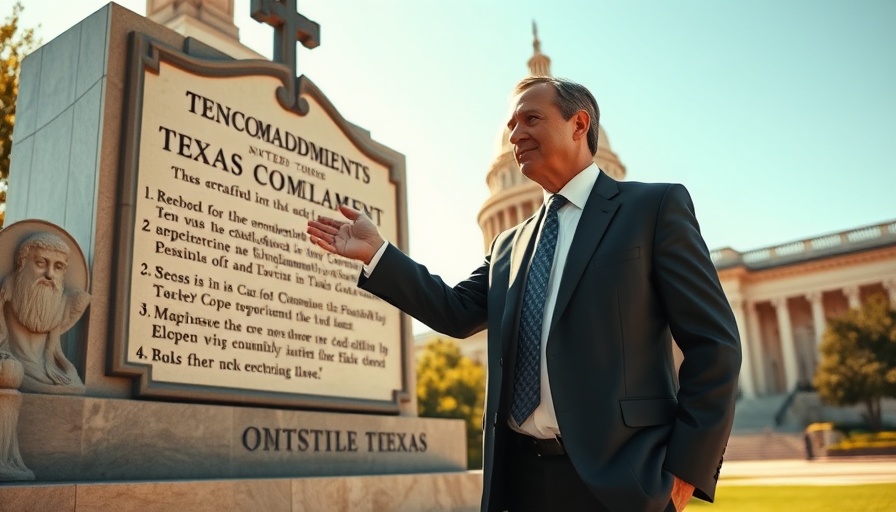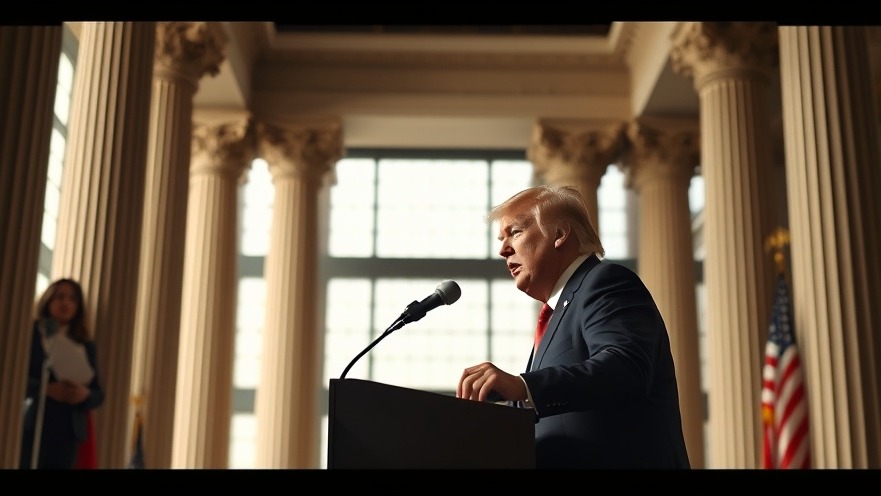
Legal Challenge to Texas' Controversial SB 10
A lawsuit led by 16 multifaith and nonreligious families has been filed against Texas’s newly enacted Senate Bill 10, which mandates the display of the Ten Commandments in all public school classrooms across the state. This legal challenge, officially titled Rabbi Nathan v. Alamo Heights Independent School District, raises critical questions about the intersection of education, religious freedom, and the constitutional principle of separation of church and state.
The Rationale Behind SB 10
The recently passed SB 10 requires that a Protestant version of the Ten Commandments be displayed prominently in every classroom, measuring a minimum of 16 by 20 inches, ensuring visibility from any corner of the room. Proponents of the bill argue that it promotes moral values among students and serves as a reminder of America's religious heritage.
However, the swift passage of the bill through Texas’s legislature—with the Senate approving it on May 30 and the Governor signing it into law just weeks later—has drawn significant backlash. Critics assert that the requirement places a state-sponsored religious message at the core of public education, effectively infringing upon the rights of parents and students from diverse religious backgrounds.
Religious Freedom at Stake
The plaintiffs, represented by major organizations including the Freedom From Religion Foundation and ACLU, emphasize the violation of First Amendment rights. The case seeks to block the law's enforcement, fearing that it could stigmatize non-Protestant students and families and distract from educational content that respects diverse beliefs.
Families involved in the lawsuit come from varying faiths—Jewish, Hindu, and Baptist, among others—highlighting a coalition against what they view as religious imposition in public schools. They argue for respect and acknowledgement of their beliefs, indicating that education should remain neutral concerning religious doctrine.
Historical Context of Religious Displays in Schools
This legal battle unfolds against a backdrop of historical attempts to introduce religious elements into public education. In the early 2000s, similar efforts in various states faced fierce opposition and roadblocks, notably due to previous Supreme Court rulings that upheld the separation of church and state.
In 2005, a landmark decision allowed a Ten Commandments monument to remain outside the Texas State Capitol, demonstrating the nuanced evolution of religious expression versus government endorsement. The situation around SB 10 echoes these debates, as the current legal challenge could potentially culminate in a pivotal Supreme Court ruling.
The Future of SB 10
As the lawsuit progresses, lawmakers and educational institutions brace for an ongoing public conversation about religious freedom and the role of faith in public life. Notably, this case is poised to represent a broader debate not only within Texas but across the United States, particularly as other states may consider similar legislation.
With the scheduled implementation of SB 10 on September 1, advocating groups are working vigorously to secure a preliminary injunction to block the law before students return to classrooms for the 2025–26 school year. The outcome of this lawsuit may set legal precedents shaping how religious content is approached in educational environments going forward.
Taking Action in a Complex Political Landscape
A burgeoning public interest highlights the critical importance of engaging with current events like SB 10. Individuals are encouraged to stay informed about local and national advocacy efforts regarding educational policy and religious freedom. Engaging with legislative processes and supporting organizations that champion civil rights can play an integral role in fostering an inclusive education system.
Amidst a turbulent political landscape, cultivating understanding around such significant issues is essential for ensuring that public school systems remain environments conducive to learning, respect, and diversity.
As this legal story unfolds, stakeholders across various sectors, from education experts to diverse families, are reminded of the pressing need for vigilance in protecting the priceless ideals of freedom and equality that underpin American society.
 Add Element
Add Element  Add Row
Add Row 



 Add Row
Add Row  Add
Add 


Write A Comment